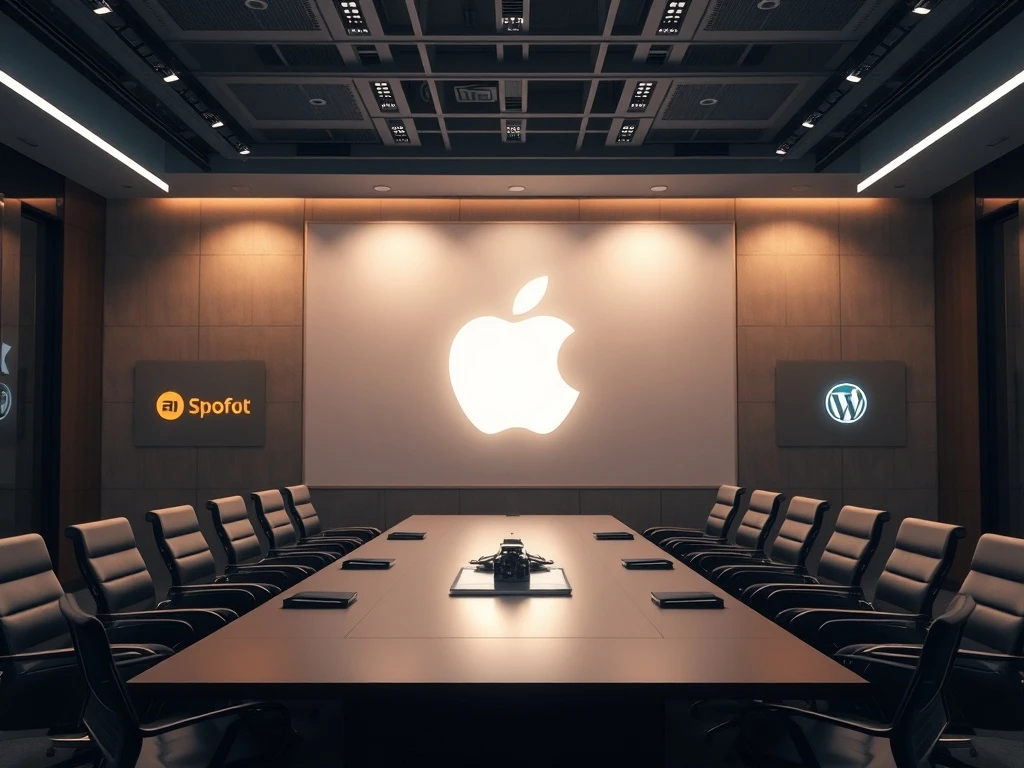Apple’s artificial intelligence strategy faces mounting scrutiny as competitors rapidly advance. Consequently, the tech giant’s once-unassailable market position shows concerning cracks. Meanwhile, companies like Google and Microsoft aggressively push AI innovation boundaries. Therefore, Apple’s cautious approach risks eroding its technological leadership permanently.
Apple AI Leadership Under Microscope
Industry analysts question Apple’s AI leadership trajectory. The company traditionally excelled at perfecting existing technologies rather than pioneering new ones. However, AI demands first-mover advantage and bold innovation. Consequently, Apple’s methodical pace creates significant competitive disadvantages. Major tech firms now invest billions monthly in AI research and development.
Competitive AI Landscape Intensifies
The AI race accelerates dramatically across multiple fronts:
- Google DeepMind continues achieving groundbreaking AI milestones
- Microsoft OpenAI partnership dominates enterprise AI solutions
- Amazon AWS AI services capture massive cloud market share
- Meta AI research publishes influential papers regularly
Meanwhile, Apple’s AI announcements remain comparatively modest. The company focuses primarily on device-based machine learning enhancements.
Strategic Missteps in AI Development
Apple faces three critical AI leadership challenges. First, the company prioritizes privacy to extreme degrees. This approach limits data collection essential for advanced AI training. Second, hardware-focused culture slows software innovation. Third, closed ecosystem mentality restricts external collaboration opportunities. These factors collectively hinder rapid AI advancement.
Market Impact and Investor Concerns
Wall Street monitors Apple’s AI progress closely. Analysts note declining innovation perception among consumers. Furthermore, enterprise customers increasingly choose AI-powered competitors. The stock market reflects these concerns through valuation comparisons. Tech companies leading AI innovation command significant valuation premiums.
Future Outlook and Recovery Potential
Apple retains substantial advantages despite current challenges. The company possesses unparalleled hardware integration capabilities. Additionally, massive cash reserves enable strategic acquisitions. However, time becomes increasingly critical. Competitors establish formidable AI ecosystems that create switching barriers. Apple must act decisively to reclaim AI leadership position.
Frequently Asked Questions
What specific AI technologies is Apple behind on?
Apple trails in generative AI, large language models, and cloud-based AI services compared to leading competitors.
How does Apple’s privacy focus affect AI development?
Strong privacy protections limit data collection necessary for training advanced AI systems, creating development constraints.
Can Apple catch up in the AI race?
Yes, through strategic acquisitions, talent recruitment, and increased R&D investment, though time is increasingly limited.
What are Apple’s main AI strengths currently?
The company excels in on-device machine learning, neural engine hardware, and privacy-focused AI implementations.
How does AI lag affect Apple’s product ecosystem?
Slower AI integration risks making Apple devices less intelligent and responsive compared to competitors’ offerings.
What should investors watch regarding Apple’s AI progress?
Key indicators include AI-focused acquisitions, developer conference announcements, and enterprise AI partnership revelations.
























